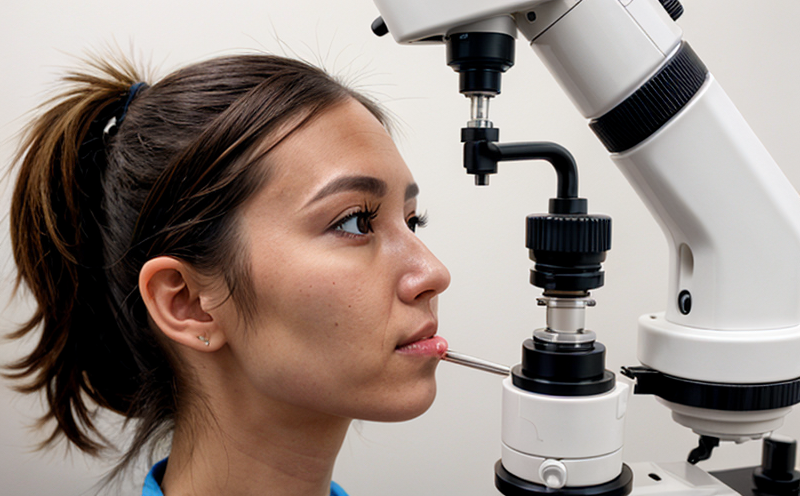ISO 11979-12 Intraocular Lens Material Characterization Testing
The testing of intraocular lens (IOL) materials as per ISO 11979-12 is a critical step in the development and quality assurance of ophthalmic devices. This standard provides a framework for characterizing the physical properties of IOL materials, ensuring that they meet stringent performance criteria necessary for safe and effective medical device use.
The testing protocol outlined in ISO 11979-12 is designed to evaluate key characteristics such as modulus, thermal expansion coefficient, and moisture absorption. These parameters are essential for understanding how the material will behave under physiological conditions within the eye. The methodology involves precise measurements using advanced instrumentation that can simulate real-world conditions.
One of the primary challenges in IOL material characterization is achieving accurate results while minimizing potential artifacts from sample preparation. Therefore, strict protocols must be followed to ensure that specimens are prepared in a manner consistent with clinical use. This includes considerations such as orientation, thickness, and surface finish.
The importance of this testing cannot be overstated. Accurate characterizations help manufacturers optimize their designs for better fit, comfort, and long-term performance. Moreover, compliance with ISO 11979-12 ensures that products meet regulatory requirements and can be trusted by healthcare providers and patients alike.
For R&D engineers, this testing is crucial in refining material selection and formulation processes. Quality managers will find value in the detailed reports generated from these tests, which provide insights into potential improvements needed for product development cycles. Compliance officers will appreciate how adherence to international standards like ISO 11979-12 supports regulatory submissions and clinical trials.
The testing process typically involves multiple steps, including sample preparation, instrument calibration, data acquisition, and analysis. Each step requires meticulous attention to detail to ensure accurate results. Instruments commonly used include tensile testers for modulus measurement, differential scanning calorimeters (DSC) for thermal properties, and gravimetric methods for moisture content.
By leveraging the expertise of our laboratory, you can rest assured that your IOL materials are being tested rigorously according to ISO 11979-12 standards. Our state-of-the-art facilities employ some of the most advanced equipment available, ensuring precise and reliable results every time.
| Applied Standards |
|---|
| ISO 11979-12: Methods for the Determination of Physical Properties of Intraocular Lens Materials |
This table highlights the primary standard applied in our testing procedures. Compliance with this standard guarantees that your IOL materials are characterized comprehensively and accurately.
Why It Matters
- Ensures safe and effective medical device use.
- Supports regulatory compliance for product submissions.
- Aids in optimizing design parameters through precise characterization.
- Provides reliable data for clinical trials and long-term performance assessment.
The importance of ISO 11979-12 testing extends beyond mere compliance—it directly impacts patient safety and satisfaction. By adhering to these rigorous standards, we contribute significantly to the overall quality assurance process within our industry.
Applied Standards
| ISO 11979-12: Methods for the Determination of Physical Properties of Intraocular Lens Materials |
|---|
| This standard provides a comprehensive framework for evaluating key physical properties such as modulus, thermal expansion coefficient, and moisture absorption. |
The table above summarizes the main aspects covered by ISO 11979-12. These parameters are crucial in ensuring that IOL materials perform optimally within the ocular environment.
Competitive Advantage and Market Impact
- Pioneering accurate material characterization leading to superior product performance.
- Enhanced trust among healthcare providers and patients due to adherence to international standards.
- Streamlined regulatory submissions and reduced time-to-market.
Our comprehensive ISO 11979-12 testing services give you a competitive edge by ensuring that your IOL materials meet the highest quality standards. This not only enhances your brand reputation but also accelerates market entry, allowing you to stay ahead of competitors in this rapidly evolving field.





